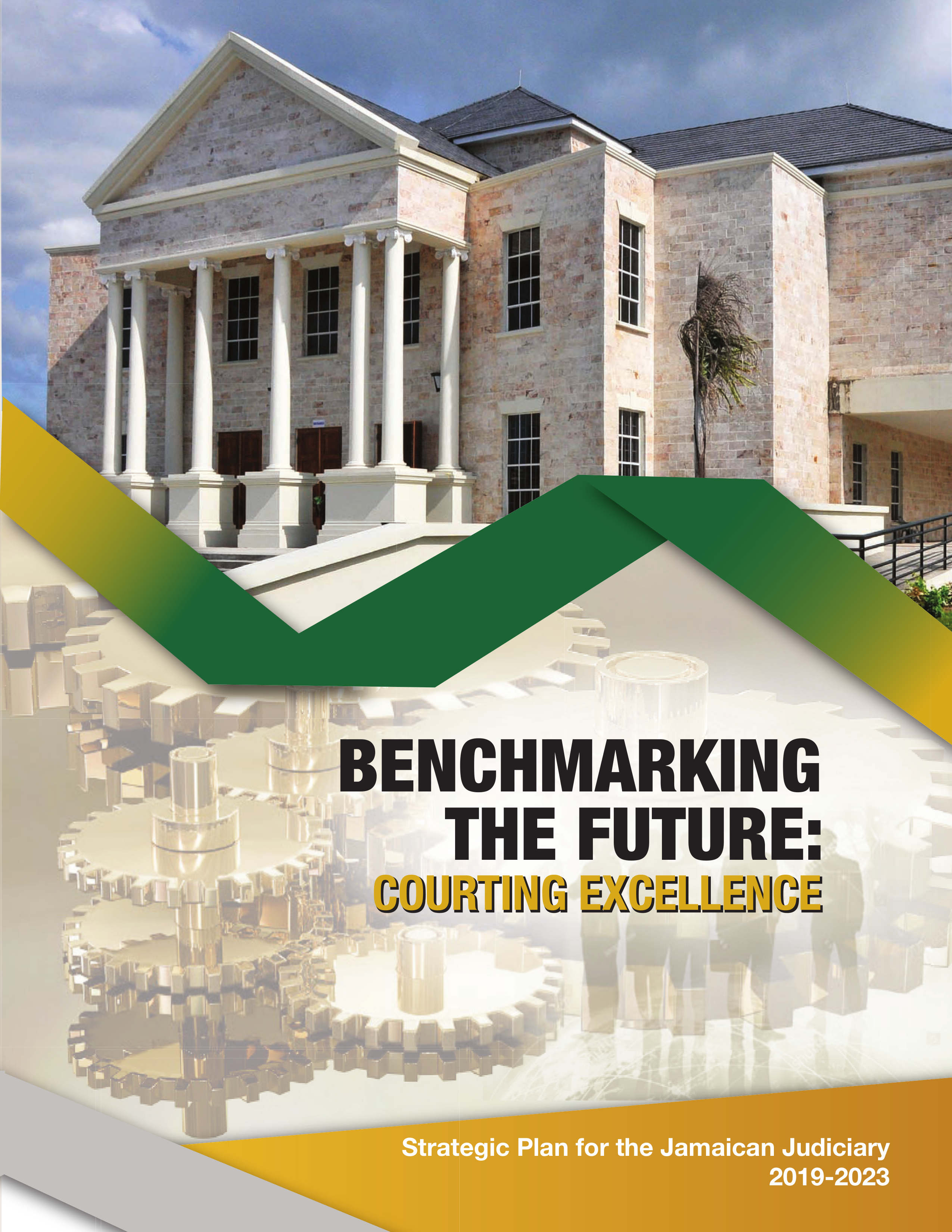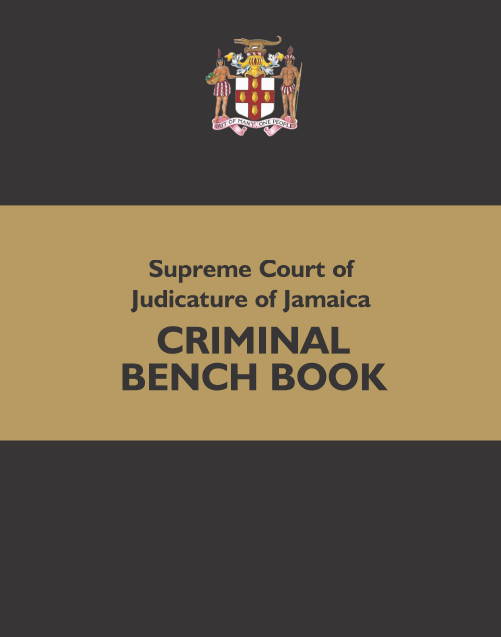Jamaica Supreme Court: A Comprehensive Guide To Its Role And Impact
Mar 22 2025
The Jamaica Supreme Court stands as one of the most important judicial institutions in the country, serving as the highest court of first instance and playing a pivotal role in shaping the legal landscape of Jamaica. Established under the Jamaican Constitution, it has the authority to hear civil and criminal cases of significant importance. This court ensures justice is delivered fairly, upholding the principles of equity and the rule of law. Its decisions have far-reaching implications for both individuals and society, making it an essential pillar of the nation's legal framework.
The court's jurisdiction extends to matters involving constitutional rights, major financial disputes, and serious criminal offenses. It is the court where many landmark cases are decided, often setting precedents that influence future legal interpretations. Understanding the workings of the Jamaica Supreme Court is crucial for anyone interested in the legal system, as it provides insights into how justice is administered and how the law evolves over time.
As a cornerstone of the Jamaican judicial system, the Jamaica Supreme Court operates with a team of highly skilled judges who are appointed based on their extensive legal experience and expertise. These judges are tasked with interpreting the law and ensuring that justice is served impartially. This article delves into the functions, history, and significance of the Jamaica Supreme Court, providing readers with a comprehensive understanding of its role in the legal and social fabric of Jamaica.
Read also:Oshea Jackson Jr The Rising Star Carving His Own Legacy
What is the Role of the Jamaica Supreme Court?
The Jamaica Supreme Court plays a multifaceted role in the administration of justice. It serves as the primary judicial body for hearing and determining a wide range of cases, including those involving constitutional matters, complex civil disputes, and serious criminal offenses. The court's jurisdiction is extensive, allowing it to address issues that have significant implications for the society at large. Its decisions often set legal precedents, influencing future cases and shaping the development of Jamaican law.
One of the key functions of the Jamaica Supreme Court is to interpret the Constitution and ensure that laws are applied consistently with constitutional principles. This involves reviewing legislation and government actions to determine their legality and constitutionality. The court's role in safeguarding constitutional rights makes it a vital institution for protecting individual freedoms and ensuring that the government operates within the bounds of the law.
How Does the Jamaica Supreme Court Operate?
The operation of the Jamaica Supreme Court is governed by specific rules and procedures designed to ensure fairness and efficiency in the administration of justice. Cases are assigned to judges based on their expertise and the nature of the case. The court follows a structured process for hearing cases, which includes pre-trial motions, evidence presentation, and oral arguments. Judges carefully consider all aspects of a case before rendering a decision, often supported by detailed legal reasoning.
Additionally, the Jamaica Supreme Court employs a panel of highly qualified judges who bring diverse legal perspectives to their deliberations. These judges are appointed based on their extensive legal experience and commitment to upholding the principles of justice. The court's operations are further supported by a team of legal professionals, including clerks and administrative staff, who ensure that cases are processed efficiently and effectively.
What are the Major Challenges Facing the Jamaica Supreme Court?
Despite its critical role in the legal system, the Jamaica Supreme Court faces several challenges that impact its ability to deliver justice effectively. One of the primary challenges is the backlog of cases, which can lead to delays in the resolution of disputes and the administration of justice. This backlog is often attributed to limited resources, including insufficient funding and personnel shortages.
Another challenge is the evolving nature of the law, which requires judges to continually update their knowledge and adapt to new legal developments. The court must also address issues related to access to justice, ensuring that all individuals, regardless of their socio-economic status, have the opportunity to seek redress through the legal system. Addressing these challenges is essential for maintaining the integrity and effectiveness of the Jamaica Supreme Court.
Read also:Things To Do In Bozeman Mt A Comprehensive Guide To Adventure Culture And Relaxation
History of the Jamaica Supreme Court
The Jamaica Supreme Court has a rich history that dates back to the colonial period. Established in 1870, it has undergone several transformations to meet the changing needs of the society. Initially, the court was modeled after the British legal system, reflecting the colonial influence on the Jamaican judiciary. Over time, the court has evolved to incorporate local legal traditions and address contemporary issues.
Key milestones in the court's history include the adoption of the Jamaican Constitution in 1962, which granted greater autonomy to the judiciary, and the establishment of the Caribbean Court of Justice in 2005, which provided an alternative appellate jurisdiction. These developments have strengthened the independence and authority of the Jamaica Supreme Court, enabling it to play a more active role in shaping the legal landscape of the country.
Who are the Key Figures in the Jamaica Supreme Court?
The Jamaica Supreme Court is led by a Chief Justice, who is the principal judicial officer and plays a crucial role in the administration of justice. The current Chief Justice, Hon. Zaila McCalla, brings a wealth of experience and expertise to the position, having served in various capacities within the legal profession. Her leadership has been instrumental in addressing the challenges facing the court and enhancing its effectiveness.
In addition to the Chief Justice, the court is staffed by a team of experienced judges who are appointed based on their qualifications and legal acumen. These judges are responsible for hearing cases and delivering impartial judgments. Their collective expertise ensures that the court can handle a wide range of legal issues and provide fair and just resolutions.
Why is the Jamaica Supreme Court Important for Society?
The Jamaica Supreme Court is vital for maintaining social order and ensuring that justice is administered fairly and equitably. By resolving disputes and interpreting the law, the court plays a crucial role in upholding the rule of law and protecting individual rights. Its decisions have a profound impact on the society, influencing policies and shaping the legal framework that governs daily life.
Moreover, the court serves as a check on government power, ensuring that laws and policies are implemented in accordance with constitutional principles. This function is essential for safeguarding democracy and promoting accountability in governance. The Jamaica Supreme Court's commitment to justice and fairness makes it an indispensable institution for the society.
How Does the Jamaica Supreme Court Impact Legal Precedents?
The decisions rendered by the Jamaica Supreme Court often set legal precedents that influence future cases and shape the development of Jamaican law. These precedents provide guidance to lower courts and legal practitioners, ensuring consistency and predictability in the application of the law. By establishing clear legal principles, the court helps to clarify ambiguous areas of the law and provides a framework for resolving similar disputes in the future.
Some of the most significant legal precedents set by the Jamaica Supreme Court have addressed issues such as human rights, property law, and criminal justice. These precedents have had a lasting impact on the legal system, influencing legislative reforms and policy decisions. The court's role in shaping legal precedents underscores its importance as a guardian of the law and a promoter of justice.
What are the Future Directions for the Jamaica Supreme Court?
As the legal landscape continues to evolve, the Jamaica Supreme Court must adapt to meet the changing needs of the society. This involves embracing new technologies and practices that enhance the efficiency and effectiveness of the judicial process. For example, the court could explore the use of digital tools to streamline case management and improve access to justice for all individuals.
Another important direction for the court is to strengthen its capacity to address emerging legal issues, such as those related to technology, globalization, and environmental sustainability. By expanding its expertise in these areas, the court can ensure that it remains relevant and responsive to the challenges of the modern world. Additionally, fostering greater public awareness and understanding of the court's role can enhance its credibility and trustworthiness.
Can the Jamaica Supreme Court Improve Access to Justice?
Improving access to justice is a key priority for the Jamaica Supreme Court, as it seeks to ensure that all individuals have the opportunity to seek redress through the legal system. This involves addressing barriers such as cost, complexity, and lack of awareness, which can prevent people from accessing justice. The court can take several steps to enhance access, including simplifying procedures, providing legal aid, and promoting public education about legal rights and remedies.
By implementing these measures, the Jamaica Supreme Court can play a pivotal role in promoting social justice and equality. Ensuring that justice is accessible to all is essential for maintaining public confidence in the legal system and fostering a fair and equitable society. The court's commitment to improving access to justice reflects its dedication to serving the needs of the society.
Conclusion
The Jamaica Supreme Court is a vital institution that plays a central role in the administration of justice and the protection of individual rights. Through its decisions and actions, the court upholds the principles of fairness, equity, and the rule of law, ensuring that justice is delivered impartially and effectively. As the legal landscape continues to evolve, the court must remain adaptable and responsive to the changing needs of the society, fostering greater access to justice and promoting the development of a fair and equitable legal system.
Table of Contents
- Role of the Jamaica Supreme Court
- Operation of the Jamaica Supreme Court
- Challenges Facing the Jamaica Supreme Court
- History of the Jamaica Supreme Court
- Key Figures in the Jamaica Supreme Court
- Importance of the Jamaica Supreme Court for Society
- Impact on Legal Precedents
- Future Directions for the Jamaica Supreme Court
- Improving Access to Justice
- Conclusion

